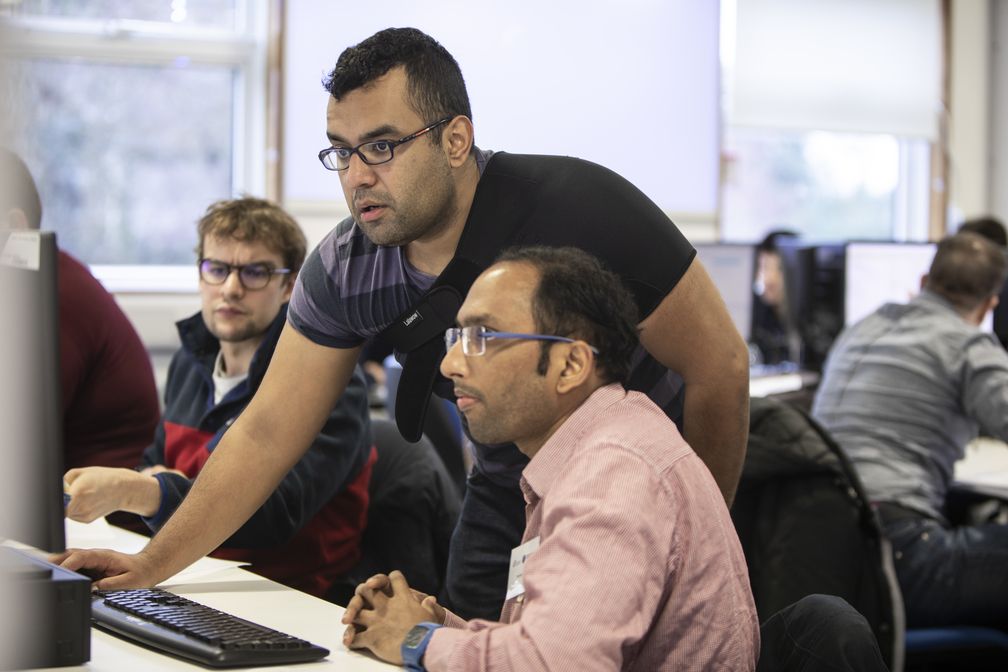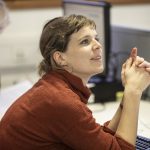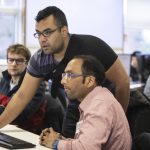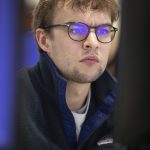by Amos Lawless
In March 2019 the Data Assimilation Research Centre at the University of Reading organised a 4-day training course in data assimilation, in collaboration with the National Centre for Earth Observation, ECMWF and the DARE project. The course was attended by 24 early-career researchers from 10 different countries, including scientists from universities, research institutes and industry.
The aim of the course was to give students a solid grounding in the theory of data assimilation methods, as well as the opportunity to apply data assimilation methods to a range of numerical models. The first day of the course saw a general introduction to data assimilation, followed by a more in-depth look at variational methods, both from a theoretical and practical point of view. A computer practical session in the afternoon gave students the opportunity to deepen their understanding by running a variational scheme on a simple numerical model. The day ended with an ice-breaker event, allowing attendees to discuss their particular research projects and their interest in data assimilation over a drink and some nibbles.
The remainder of the course looked at the theory and practice of other data assimilation methods, each supported by computer practical sessions, including the ensemble Kalman filter on day 2, hybrid methods on day 3 and the particle filter on the final day. In between students were treated to two lectures on practical applications: PhD student Jemima Tabeart spoke of her work looking at observation error correlations in the Met Office 1DVar data assimilation system, while research fellow Polly Smith spoke about coupled atmosphere-ocean data assimilation. At the end of day 3 a group meal was organised at the Zerodegrees microbrewery restaurant in the centre of Reading, giving further opportunity for informal discussions of the course material and how students could use the ideas in their own projects. At the end of the final day, after attendees were presented with their course certificates, the staff were also presented with a gift – A 900-piece Lego wind turbine from the Danish attendees. So, if you don’t hear from us for a while, you will know why!
All lecture notes from the course and material for the computer practicals are available to download from the course web site
https://research.reading.ac.uk/met-darc/ecmwf2019/


















